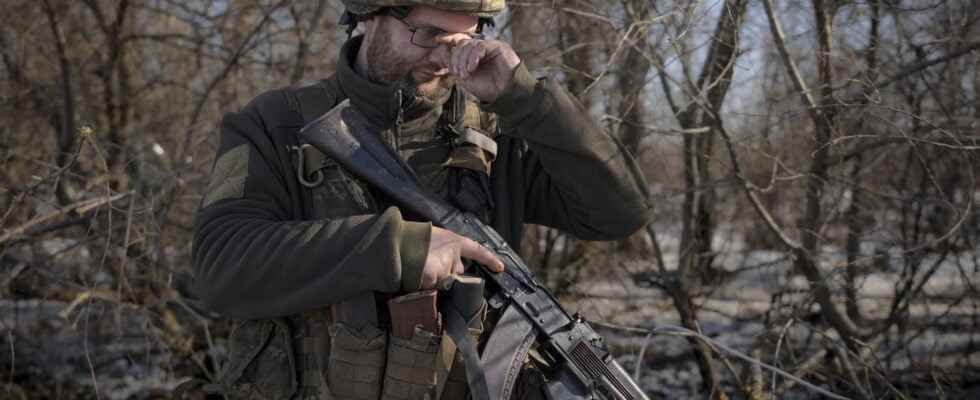UKRAINE. For several weeks, tensions have arisen between Russia and Ukraine, against the backdrop of a long conflict. France fears the outbreak of a war. Update on the situation.
Will war break out between Russia and Ukraine? This is the question that has been putting Europe under pressure for many weeks. Vladimir Poutine, the Russian president, agitates the thinly disguised threat of an invasion of this close country on bottom of political disagreement with his Ukrainian counterpart. Faced with this diplomatic instability, the European Union, and particularly France via Emmanuel Macron, is trying to play the matchmaker to dissuade the head of the Kremlin from proceeding with a new annexation of part of the country, after Crimea in 2014. But then that tensions between the two countries have been exacerbated over the days in the face of Russia’s deployment of a large military force on the border with Ukraine, could a war break out in eastern Europe ? “Are there all the elements for a strong offensive by Russian forces in Ukraine? Yes, it’s true, it’s possible there, it’s possible quickly,” said the Minister of Foreign Affairs. Foreign Affairs Jean-Yves Le Drian on France 5this Monday, February 14, 2022.
Towards a war between Russia and Ukraine?
This Monday, Boris Johnson also said he feared an invasion of Russia “within the next 48 hours”, after a weekend during which the climate was feverish due, in particular, to calls launched by the United States. , Great Britain, Belgium, Germany or even the Netherlands, recommending that their citizens established in Ukraine leave the country. Russia would also, according to the United States, now “well over 100,000” soldiers posted at the border. If the telephone exchanges between the French and American leaders with their Russian and Ukrainian counterparts have multiplied in an attempt to calm the situation, a military exercise has been organized at sea by Russia, while the United States has sent 3,000 soldiers in Poland, a border country with Ukraine… but also the Kaliningrad oblast, this Russian exclave wedged between Poland and Lithuania, both members of the European Union.
After a weekend of high tension, Boris Johnson called on Vladimir Putin on Monday to step back from the “precipice”. For his part, Volodymyr Zelensky, President of Ukraine, urged his neighbors to de-escalate: “Russia’s military activities on the Ukrainian border are not understandable. There are no reasonable grounds for such a deployment military. And we call on Russia to seize the existing offers of dialogue.” For its part, Russia replied, via a conversation between Vladimir Putin and his Minister of Foreign Affairs, broadcast on television, “that there are always chances” to find a point of agreement with the West. “It seems to me that our possibilities are far from being exhausted […] At this stage, I would suggest continuing and expanding them,” Foreign Minister Sergey Lavrov said. “The priority is to avoid a war, we must reach a diplomatic solution,” Olaf said. Scholz, the German Chancellor, who also invited himself to the negotiating table.
What is the origin of the conflict between Russia and Ukraine?
Russia and Ukraine have a special bond. Ukraine was indeed one of the entities constituting the USSR, until the dissolution of the latter in 1991 and the proclamation of Ukrainian independence. However, Ukraine retains ties with Russia. In 2013, while a pro-Russian president was in office (Viktor Yanukovych), a revolution broke out in the country and ousted the head of state. In repression Vladimir Putin annexes Crimea, a Ukrainian territory. In the country, pro and anti-Russian clash. Ukrainian separatists favorable to the neighboring country then took control of the Dombass region with the support of Russia.
If, for a few years, the white flag was waved, Vladimir Putin suddenly deployed tens of thousands of men at various points on the border between Russia and Ukraine, in the fall of 2021. A worrying maneuver explained, in particular , by the political will of Volodymyr Zelensky, President of Ukraine, to join NATO. Which, for Vladimir Putin, is “unacceptable”. The boss of the Kremlin indeed judges that “Russia has been stripped” with the independence of Ukraine. From there to wanting to get their hands on the country? Lately, international diplomats have been trying to calm the ardor of a Vladimir Putin who, however, certifies that he has no intention of invading.
